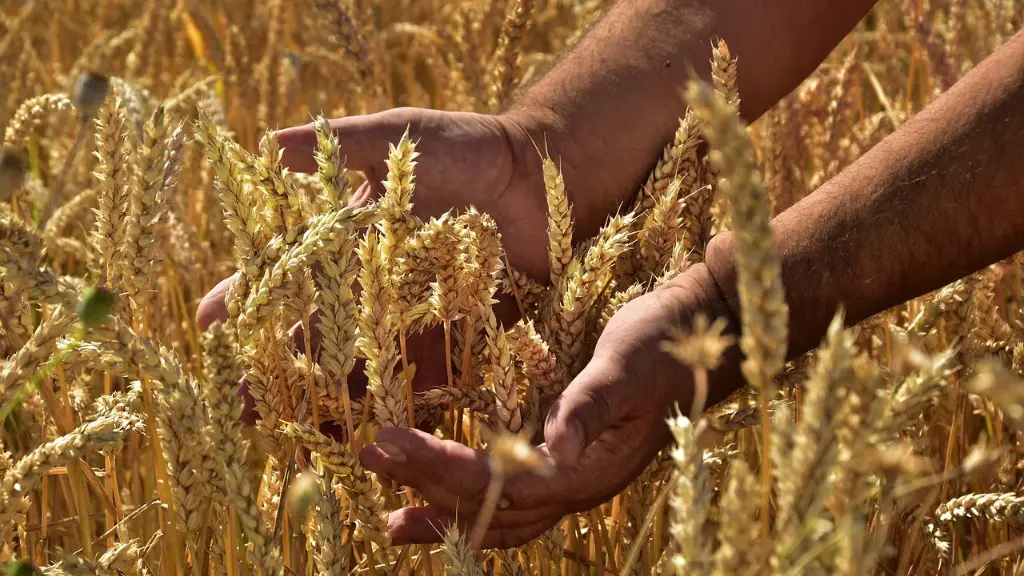There is no straightforward answer to this question as it depends on a number of factors, including the type of agriculture income, the state in which the income is earned, and the federal tax laws. However, in general, agriculture income is subject to both federal and state taxes.
There is no definitive answer to this question since tax laws vary from country to country. It is advisable to speak to an accountant or tax specialist in order to determine if agriculture income is taxable in the United States.
Is agriculture income taxed in the US?
Agricultural income is not subject to income tax in India. The Income-tax Act has, however, specified how such income is to be indirectly taxed. Agricultural income is exempt from tax if it is derived from land which is situated in India and is used for agricultural purposes. However, agricultural income derived from land which is not situated in India or is not used for agricultural purposes is taxable.
Agricultural income is defined as any rent or revenue derived from land which is situated in India and is used for agricultural purposes. This includes income from farm buildings, crops, grass, and trees. Agricultural income is exempt from tax under section 10(1) of the Income-tax Act.
Is farm income tax free in USA
Farmers, like other taxpayers, are subject to a variety of taxes at all levels of government. At the Federal level, these include income taxes, social security and self-employment taxes, and estate taxes. At the state and local level, the most significant taxes are on property and income.
The tax burden on farmers can be significant, and it is important for farmers to be aware of the taxes they may be liable for. There are a number of tax breaks and Credits available to farmers, which can help to reduce the tax burden.
Agricultural income is exempt from tax under Section 10(1) of the Income Tax Act, 1961. This means that any income earned from agriculture is not subject to tax. This is a very beneficial provision for farmers, as it allows them to keep more of their income. However, there is no limit on the amount of agricultural income that can be exempt from tax. This means that a farmer could potentially earn a very large amount of money from agriculture without having to pay any tax on it. This is a very surprising and shocking provision that gives farmers a huge advantage over other taxpayers.
What states have agricultural income tax?
Agricultural tax is a tax levied on farmers for their agricultural activities. Six states in India have agricultural tax legislation on the books, but the implementation of these taxes vary substantially from state to state. In some states, such as Kerala, Tamil Nadu, and Assam, agricultural taxes are not levied at all. In other states, such as Bihar, West Bengal, and Odisha, agricultural taxes are only levied on income from plantations.
A farm is an area of land that is devoted to agricultural production. Farms may be owned and operated by a single individual, family, or group of individuals, and can vary in size from a small plot of land to hundreds or even thousands of acres. Farmlands are used to produce a variety of food and non-food products, including livestock, dairy, poultry, fish, fruit, and vegetables. In addition to agricultural production, farms may also include plantations, ranches, and orchards.
Do farmers get Social Security?
If you work on a farm and your employer pays you $150 or more in cash wages during the calendar year, your wages are covered by Social Security. If you are paid less than $150 in cash wages, but your employer reports total expenses for agricultural labor to the IRS of $2,500 or more for the year, your wages are also covered by Social Security.
This exemption is in place to encourage agricultural production and to ensure that farmers are not unduly burdened by taxes. Farmers are already faced with many challenges and costs, and this exemption helps to alleviate some of the financial pressure they may be under.
What are the types of agricultural income
Agricultural income can be broadly classified into three categories: rent or revenue derived from land, income from agricultural operations, and income from farm houses/buildings attached to agricultural land.
Rent or revenue derived from land includes lease payments, royalties, and other payments received for the use of agricultural land. Income from agricultural operations includes proceeds from the sale of crops and livestock, as well as income from the sale of agricultural products and services. Income from farm houses/buildings attached to agricultural land includes rental income, as well as proceeds from the sale of these properties.
There are two types of earned income: wages and salaries, and self-employment income. Wages and salaries are the most common type of earned income. This is the money you earn from working for an employer. Self-employment income is money you earn from running your own business or farm.
How do I report farm income?
If you are involved in farming activities, you will need to use Schedule F (Form 1040) to report your income and expenses from these activities. This form should be filed along with your Form 1040, 1040-SR, 1040-NR, 1041, or 1065. Depending on your state and local laws, you may also be subject to state and local taxes and other requirements, such as business licenses and fees.
A farm can make losses for a number of years in succession, and these losses are available for offset against other income for the first three years only. Special rules extend this period in the case where a farmer commences his/ her trade. No loss relief is available for hobby farming.
What if agricultural income is more than 5000
As per the Income Tax Act, 1961, net agricultural income exceeding ₹5,000/- for the previous financial year is exempt from income tax. However, income from other sources which is beyond the basic exemption limit is taxable. For individuals below 60 years of age, the income exemption limit is ₹250,000 and for those aged between 60-80 years, it is ₹300,000.
Agricultural income exceeding Rs 5,000 must be declared in ITR-2. ITR-1 can only be used if the agricultural income does not exceed this limit.
What type of tax do farmers pay?
If you are carrying on a farming trade as an individual, you are liable to Income Tax (IT) on the profits of your business. The amount of tax you pay will depend on the amount of profit you make and your personal circumstances.
Agricultural income is taxed by the State Governments in India. Farmers who only have agricultural income are not required to file income tax returns. This is because agricultural income falls under Entry 46 in the ‘State List’ in the Constitution of India. This means that only State Governments are competent to enact legislations for taxation of agricultural income.
Warp Up
There is no definitive answer to this question as it depends on a number of factors, including the type of agriculture income, the state in which the income is earned, and the federal tax rules that apply.
Overall, agriculture income is taxable in the USA. There may be some specific circumstances where agriculture income is not taxable, but generally speaking, if you earn money from agriculture, you will need to pay taxes on that income.





